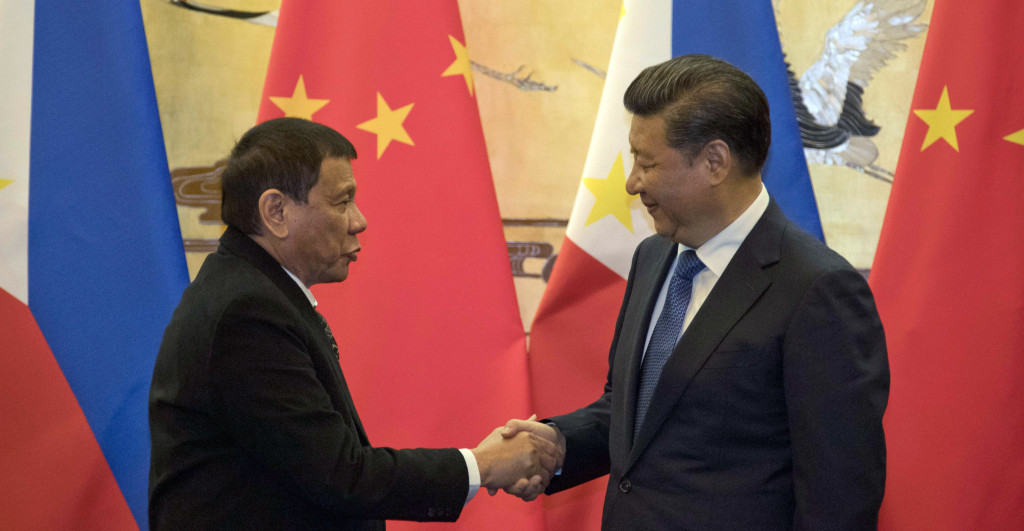Duterte mustn’t make ‘wastepaper’ of int’l court ruling
Does Philippine President Rodrigo Duterte intend to disregard the international law-based maintenance of order in the South China Sea? If his stance remains unchanged, not only his own country’s national interests but also Asia’s stability would be undermined.
Duterte held his first talks with his Chinese counterpart Xi Jinping in Beijing. The two leaders agreed to mend ties between their nations, which were at odds over a sovereignty dispute in the South China Sea during the administration of former Philippine President Benigno Aquino III.
Xi stressed, “The two countries will manage differences over the South China Sea issue through dialogue, and shelve issues that are difficult to agree on.” His remarks were apparently about issues such as a July ruling by an arbitration tribunal that denied Beijing’s sovereignty over the South China Sea.
Duterte also stopped short of addressing the sovereignty issue. He apparently gave priority to practical gains from China.
READ: Duterte ‘weakened’ PH claim over West Philippine Sea—Osmeña
The Xi administration announced economic cooperation in such areas as infrastructure development, and lifted a ban on imports of Philippine bananas and other items and restrictions on Chinese people traveling to the Philippines.
With the Philippines drawn in, China’s intention to distance Manila from Japan and the United States, which have both urged Beijing to abide by the ruling, is evident.
READ: Palace: South China Sea not on Duterte’s agenda in Japan visit
China has refused to accept the ruling, calling it “wastepaper.”
It is essential that the Philippines, as the plaintiff in the case, asserts the importance of “the rule of law” based on its having won the ruling, in order to stave off China’s bid to turn the South China Sea into Beijing’s military stronghold and protect “freedom of navigation.” Duterte must be aware of his country’s role.
Anti-U.S. moves alarming
If the Philippines gives a tacit nod to China’s attempts to unilaterally change the status quo in the South China Sea in exchange for economic assistance from Beijing, it will inevitably face serious problems in the future.
The Duterte administration has placed top priority on an anti-drug policy under which about 4,000 people, including trafficking suspects, have reportedly been killed by police and vigilante groups.
The United States and the United Nations have criticized the brutality of this administration, which is ignoring judicial procedures, but China has tolerated it. This appears to be a major reason for Duterte’s tilt toward China.
A move that cannot be overlooked is Duterte shaking off the alliance with the United States, which has guaranteed security for the Philippines.
The Philippine president has expressed his intention to suspend joint patrols and exercises with the U.S. military in the South China Sea as well as to review military agreements forged by the previous administration. He also openly declared a “separation from the United States” during a speech in Beijing.
If he continues to hold such an extreme stance against the United States, he could alienate himself from the Philippine people, many of whom favor Washington. The Philippines’ investment environment could also worsen, and the results of the previous government’s economic growth policies could eventually be ruined.
We urge Duterte to keep in mind that continuing to work together with the United States in security and economic affairs is vital for the region’s peace and prosperity./rga
